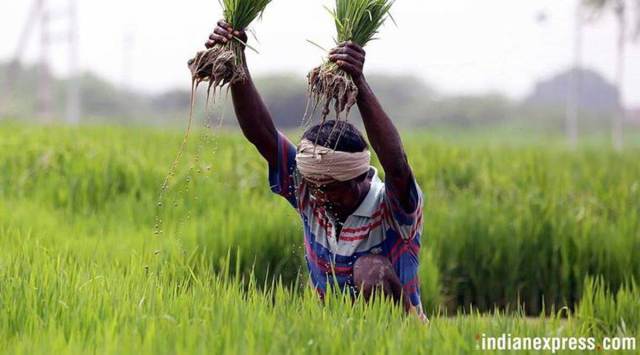- India
- International
People before profit
India needs an agriculture policy that determines people’s nutritional and economic needs and promotes crops according to it – not for the benefit of corporations
 Finance Minister Nirmala Sitharaman needs to be complimented for bringing about transparency in the Union Budget, at least in the part on the agri-food sector. (File)
Finance Minister Nirmala Sitharaman needs to be complimented for bringing about transparency in the Union Budget, at least in the part on the agri-food sector. (File)The raging debate questioning the “continuation of MSP” of a few crops “in the age of agricultural surplus”, should be viewed from the lens of feeding the people, rather than corporate profit. It is only partly true that the MSP regime was brought in when food production was scarce. What is nearer to the truth is that the MSP regime, government procurement, stocking and controls over food trade through the Essential Commodities Act, were a result of mass uprisings due to food shortage, hoarding, black marketing and inflation.
It is argued that unless a greater role for markets is allowed and agriculture is made “demand-driven”, the surplus production and procurement will sink the economy. Therefore, in the transition, there should be a pricing mix between state support and the private purchasers. The state procures only a small portion of produce — that mix is what it is today. The new central farm laws, it is argued, do not dismantle the MSP and that they will end corruption and bring in investments.
Nothing can be further from the truth. The new laws are a measure to hand over the entire market and agriculture production to corporate control and to provide an escape to the government from its responsibility to procure, stock, control and assure the supply of food, essential for people’s existence. That the MSP will become dysfunctional is a foregone conclusion. It is embodied in the Contract Act and is reflected by the current sale of paddy at Rs 1,100/quintal in most parts while the MSP is Rs 1,868. This Rs 1,100 is practically the corporate rate, which is the determinant in the “free” market.
While an assured price and procurement regime for only a few crops may distort supply versus requirement chains and allow an excessive surplus, this has not happened in India. After all, India stands almost at the bottom of the world hunger index – at 94th place out 104 countries. Proponents of these new laws should answer for this.
Hard facts with regard to “overproduction” show that we are still way short of our needs of cereals, pulses and oilseeds if we are to adequately feed 1.4 billion people. Our skewed distribution and market determination add to these woes.

It is being shamelessly argued that the economic burden of storage is high, say Rs 37/ kg for rice and the FCI’s debts are mounting due to this, while even the market price of rice is cheaper. They should be bluntly told to distribute the food, not store it, to the multitudes of hunger-stricken areas to thus solve the problems of both hunger and “economic efficiency”.
Corruption is the holy excuse for privatisation. This argument hides behind the poor being denied the benefits of government welfare, but is used to dismantle the welfare itself. Private investment is another signboard, even though most such investment deprives people of their land and assets, the society of its environmental safety and is done at huge government expenditure and big bank loans, which turn into NPAs.
Partial truth lends strength to these arguments, which are both fallacious and unpatriotic. Unpatriotic because the reins of the food chain are sought to be handed over to foreign companies, who have grown in their homelands with the help of government largesse, which they want to be ended here. Fallacious because the country’s food security is insufficient and fragile.
India has more than 1,000 types of agriculture products. The promotion of only a few will lead to an excessive surplus of some and the shortage of others. The only solution is an agriculture policy which determines people’s needs and promotes crops that serve those needs.
Neither people’s development nor environmental sustainability should be sacrificed at the altar of financial benefit for the corporates.
The writer is general secretary, All India Kisan Mazdoor Sabha (AIKMS) and Working Group Member, AIKSCC
EXPRESS OPINION
More Explained
Apr 26: Latest News
- 01
- 02
- 03
- 04
- 05










































